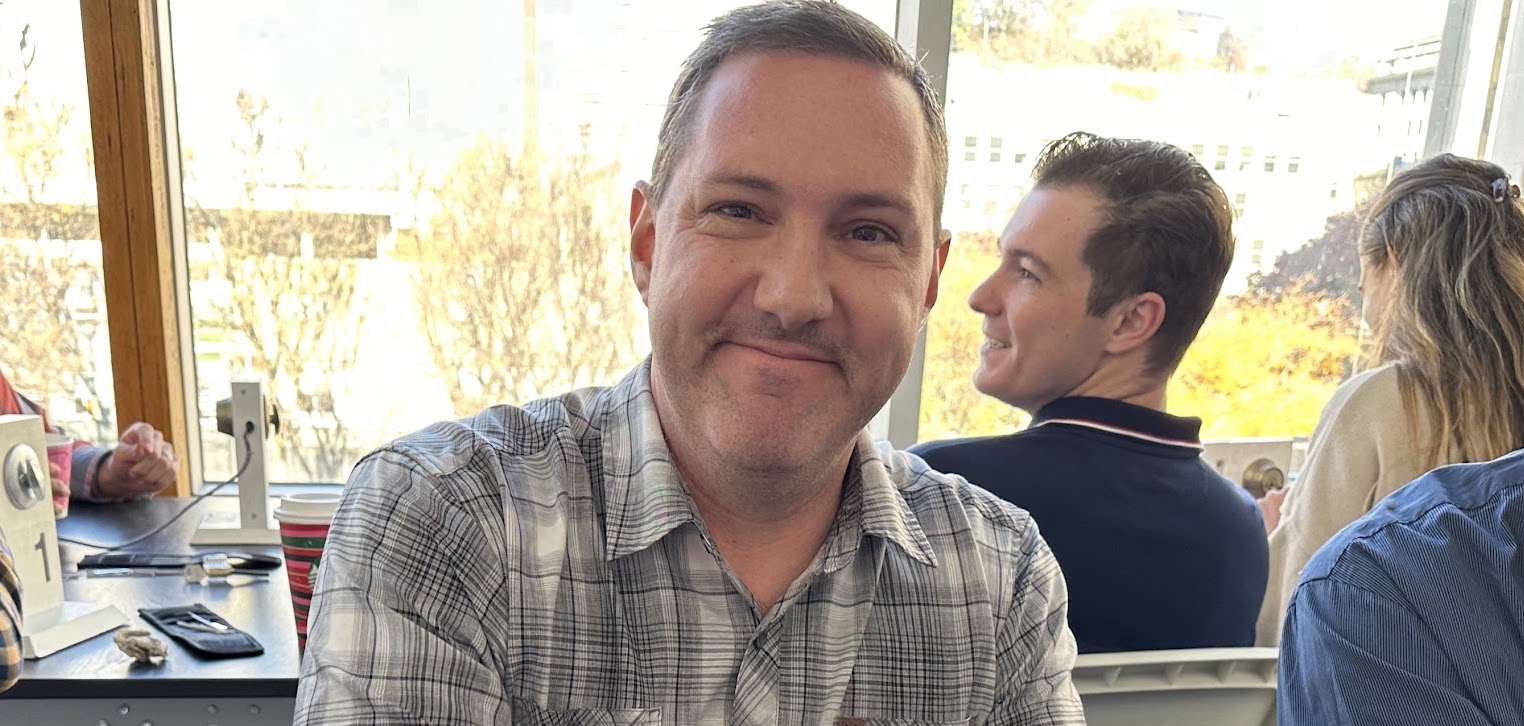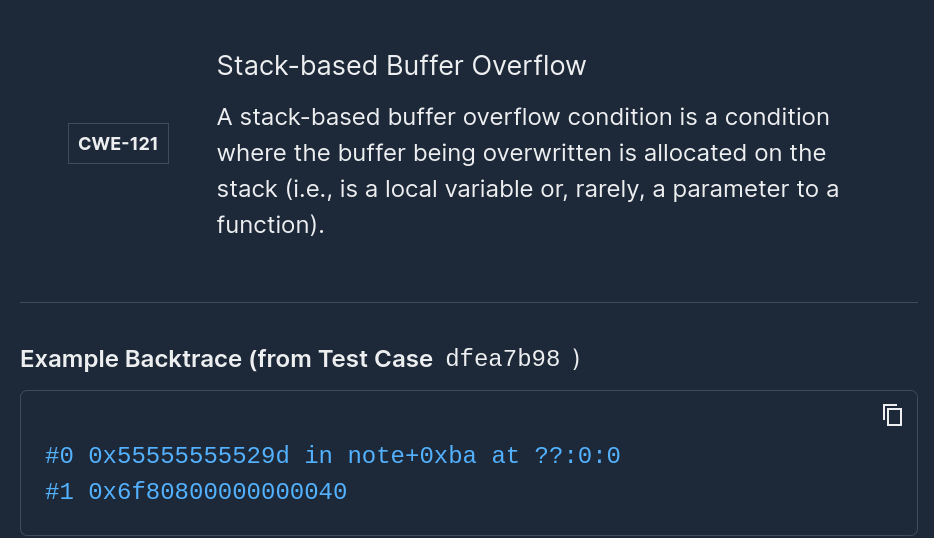Mayhem Makers: Ross Rogers, Staff Software Engineer

“Mayhem Makers” is a Q&A series dedicated to our growing company.
For this month’s profile, we talked with Ross Rogers, Staff Software Engineer, who celebrated his two-year anniversary on the Mayhem team this month. Ross is based out of Yakima, Washington.
1. Tell our readers a little bit about your role as Staff Software Engineer.
When I was hired, my focus was on the API testing side of our product, working with services through HTTP requests. I still have more knowledge in that area than most people, and I still contribute to that codebase, but my role has expanded.
Now, I contribute to both the back end and front end of our product. I work on features and bug fixes across various components, including the CLI, web backend HTTP server, database, and the frontend of our web-facing assets.
2. What did your career path look like before you came to work here?
I’ve had a lot of fun in my career journey. Initially, I was hired at a place in Oregon that specialized in routing chips for devices like Cisco routers. When visiting Cisco, I got to see a box, the size of a refrigerator, that was being sold to Italy to route the entire country's telephone calls. At the time, if you made a phone call in Italy, it was probably going through PMC Sierra chips for routing all the telecom traffic. That was an interesting place to work.
Later, I joined Intel to work on a unique chip called Larrabee, later known as Xeon Phi. We took 32 Pentium cores and jammed them onto one chip. We were originally trying to make it into a video card, which we didn’t end up doing. The follow-on chip had 64 Atom cores, the one that was commonly in the Celeron line. That chip, the Xeon Phi, got into the top 10 supercomputers in the world. That was really interesting.
At that point, I wanted to move closer to family, so I got another degree in computer science, and then I got a job working at an apple company—not the Apple company, but a company that literally grows, sells, and distributes apples—that was a big change. I was coming from pre-silicon validation to essentially being a one-man band out in Yakima, Washington. I was working on anything from web front and back end, Android apps, Raspberry Pi apps, farm sensors—all the services that they were happy to build in-house. It was a very fun experience to dip my toe into a ton of areas and make a pretty big platform for their farm team that they're using to this day.
Then, when the pandemic hit, and you could work remotely and it wasn't weird, I was able to search for job opportunities across the country. I went to work for a company that did lawyer software, and then I joined ForAllSecure.
3. What is your typical day like?
To accommodate me being on the West Coast, our standup starts at 8am my time. I normally say hi to everybody and then we do our standard scrum-style questions—What did you do yesterday? What are you going to do today?—that kind of stuff.
After the standup, I work on the tickets, fixing bugs or writing new features, and then push them through the GitHub pipeline and get them into production.
At lunch, I try to do a workout to get my brain refreshed—either I run or weight lift. Then I get back into the saddle and keep going until five.
4. What has been your favorite project you’ve worked on since joining the Mayhem team?
I've been kind of a jack of all trades, fitting in where I’m needed. Really, my favorite part is just working with the fantastic engineers here. I've enjoyed working in Rust inside of the API and CLI.
Part of the reason I joined this company is that we use Rust. I like writing Rust, because the level of confidence you get from the type system is amazing and it's unbelievably fast. Not the compilation, but the actual end result is screaming fast. And that's a big deal. When I interviewed for this job, I didn't know Rust, I just said I wanted to learn it. Rust is a big hill to climb, and they were willing to invest in me and say, “You know what, I know you don't know it, but we're going to give you the time to get onboard”, so it was a very generous opportunity.
Rust is the hardest language that I've ever learned. You really have to spend a significant amount of time just buried inside of the code before you can really get it. That was my experience, anyway.
A project I worked on recently was integrating with Keycloak. Keycloak is an open source authentication provider that allows seamless communication with various platforms, whether it's Google, Facebook, Apple, Okta, Microsoft, or your internal LDAP.
Authentication is a highly fragmented market. Integrating authentication for all of these diverse services into the product and dealing with all the various features can be overwhelming. Keycloak simplifies the process by offering an off-the-shelf solution. You integrate with it, and you're off to the races. I was instrumental in integrating Keycloak into Mayhem. More recently, I integrated Keycloak into our on-prem cluster.
5. When you are at work, how do you motivate yourself or what helps you focus?
I think of software as a craft. If you were to ask somebody who is a furniture builder, or somebody who builds houses what they enjoy about it—Day to day, it's not like putting up another wall on a construction site is the most interesting thing in the world, but you're always trying to do it better. So, you get better at your craft. You know when to use which tools. You know when it doesn't quite look right. And you also know when you’re going to hide that ugly work behind sheetrock.
I think the same thing goes for software. If you're interested in continually improving, you’ll enjoy working on software. Essentially, if you enjoy the work, it's not that hard. And if you work with great engineers who continue to help you hone the craft, then you can get better at it and hopefully make some great things. That's what I like about the software engineering process.
6. How have you grown professionally while working here?
I've learned a ton of tools, and I've also learned some better habits. It's always easy to say “I just want to get this done”, and move on to the next area without getting sufficient test coverage on your own code. Engineering leadership at Mayhem is pretty insistent about getting fantastic test coverage in our own codebase in addition to that of our customers.
A rigorous process of code review and having great feedback has really helped me get better at the craft. I can name technologies that I didn't have exposure to before working here, but in general, the quality of my software has increased because of the feedback that I've received from my peers and mentors.
7. What advice can you offer to someone looking to get into a role like yours?
I think getting a good degree does matter, and so does caring about your craft. If you like doing software engineering, that involves getting out your trowel and laying brick. As I saw on someone’s profile recently, “I make code with my bare hands”. You have to enjoy the process.
8. Tell us about yourself outside of work. What are your hobbies?
I like to exercise for my own sanity. I love being with my kids and coaching my kids’ soccer teams. I—unfortunately—like gaming too much. I enjoy working on different projects around the house. We are on three acres. We got a boat recently, so I’ve been enjoying working on the boat, too.
9. What is something you’ve learned in the previous month, whether connected to your job or not?
Recently, I've gotten to dip my toe into more Kubernetes stuff, which is something I’ve had pretty low exposure to so far. I’ve been learning about Kubernetes Helm charts and more about the Kubernetes ecosystem.
10. What is something about you that few people know about?
In the summer of 2015, my house burned down. And when that happened, I realized I'm not really a thing person. Because it was not really a big deal to me to have my house burn down with almost everything I owned in it. In fact, it was kind of relieving.
Anyway, yeah, my house completely lit up. They didn't put a lick of water on it, and it burned all the way down to the ground. There are people who are “things” people. I'm not saying I am an ascetic. I'm not a wandering monk. I like things too, but at the same time, if things disappear, it's just not that big a deal. It was really weird to find that out about myself. The loss wasn’t drastic, because I did have insurance. I'm sure if I had no insurance, it would have been a much bigger setback.
Add Mayhem to Your DevSecOps for Free.
Get a full-featured 30 day free trial.




.jpg)